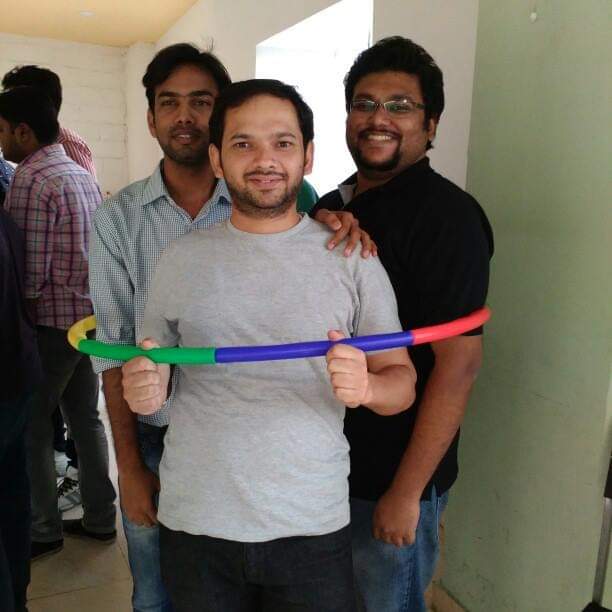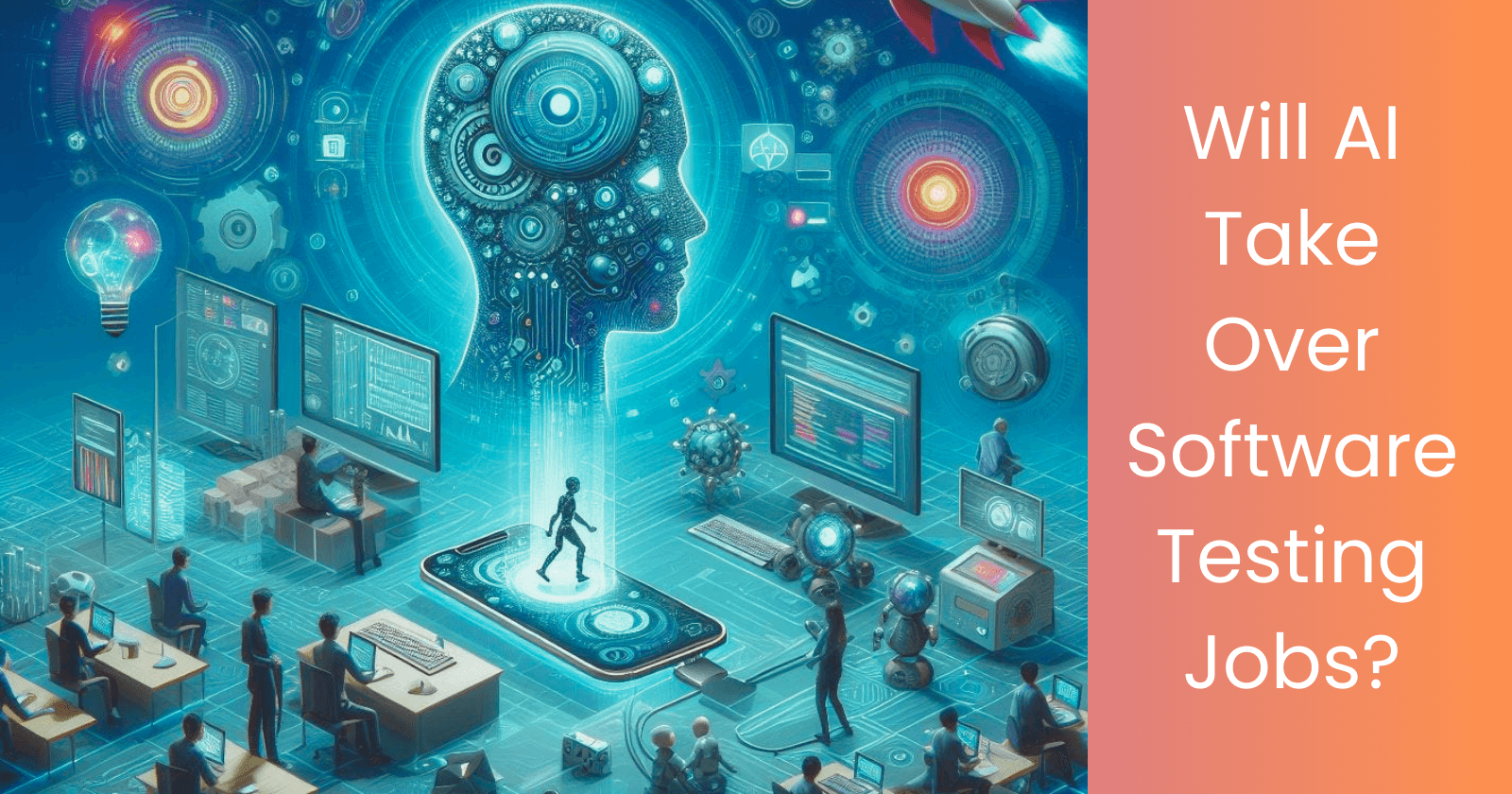The Impact of AI on Software Testing Jobs: A Detailed Analysis
 Abhay
Abhay
When ChatGPT emerged, its human-like responses were both impressive and unsettling. The initial reaction was, "It communicates just like I do," quickly followed by concerns about job displacement. However, the fear that AI will replace human software testers is misplaced.
AI will transform the testing landscape, affecting market demands, skill requirements, and knowledge needs. Those who proactively develop new skills—beyond programming, including AI and machine learning advancements—will remain competitive. The demand for testing professionals is expected to grow, potentially boosting salaries.
Experienced testers who integrate AI into their work and master testing GenAI systems will be highly valued. Embrace the evolution and discover how to stay ahead in the industry.
Evolving Job Roles and Essential Skills in AI-Driven Testing
History shows that while technology alters job roles, it rarely eliminates them. Instead, it transforms them, presenting new opportunities and challenges.
When test automation was first introduced, there were fears that manual testers would become obsolete. This didn't happen. Instead, organizations successfully adopted automation, reducing the need for manual tasks like repetitive regression testing. Today, the demand is for testers who understand what should and shouldn't be automated and can establish and follow robust testing practices.
AI is expected to bring about similar transformations. Mastering AI will be crucial for future success in quality assurance, with two primary areas of focus:
Leveraging AI for Productivity: Testers must learn to use AI tools and techniques to boost productivity and efficiency. Understanding these tools' capabilities and limitations is essential for implementing them effectively.
Testing AI Systems: As AI becomes integrated into tech stacks, testers face new challenges in quality assurance. For instance, testing generative AI systems like chatbots introduces complexities such as non-deterministic outputs, ensuring fairness, and validating decision-making processes. Testers must develop new methodologies, including synthetic data generation, adversarial testing, and continuous monitoring, to ensure AI systems remain reliable and accurate.
Testers identifying and cultivating these skills will secure their roles and position themselves for more significant compensation. As demand for these skills grows, others will naturally decline.
Shifting Skill Demands in AI-Driven Testing
The rise of no-code automation tools is reshaping the skills needed in automated software testing. Traditional programming roles are less in demand, while the focus shifts to managing tests that identify risks, especially in AI systems. Testers now need critical thinking to understand "what good looks like" without needing to execute every step.
As technical needs evolve, soft skills like communication and problem-solving become crucial. Testers must understand applications, convey complex issues to non-technical stakeholders, and collaborate effectively, ensuring their essential role in an AI-driven future.
How GenAI Enhances Testing Today
GenAI is revolutionizing software testing with three powerful capabilities:
Extensive Knowledge: GenAI has absorbed vast amounts of information, from testing manuals to educational resources, allowing it to engage in and contribute to a wide range of testing topics with deep understanding.
Content Generation: Unlike traditional search engines, GenAI can create new content, such as test cases, plans, strategies, risk analyses, and defect reports, offering fresh, tailored insights.
Multimodal Abilities: GenAI can generate content not just in text but also in image, audio, and video formats, opening up new possibilities for application scanning, automation, and action execution.
Testers leverage AI in various ways, from autogenerating test cases to smart impact analysis, making their work faster and more efficient.
Collaborative Testing: AI-Assisted vs. Autonomous Approaches
The concept of 'autonomous testing' suggests that testing could be completed without human intervention. Despite the buzz, we're still at the point where testing can be fully autonomous.
Current tools can perform tasks like self-healing scripts and adjusting tests for minor application changes. However, these tools still require human oversight due to the complexity of real-world applications and the need to validate AI-generated tests.
The current optimal approach is collaborative: humans provide input, AI handles the intermediate work, and humans validate the results. This partnership allows AI to manage repetitive tasks while humans focus on strategic, high-level testing that demands creativity and critical thinking.
AI and humans should collaborate, enhancing each other's strengths to create a more effective testing process.
The Future of Testing: Adapting to an AI-Driven Landscape
The future tester is an AI-assisted professional who utilizes AI as a smart assistant to enhance efficiency, throughput, and quality. The synergy between humans and AI is far more powerful than working alone. As the testing landscape evolves, the focus shifts from traditional application testing to evaluating and monitoring advanced AI systems. Although AI still presents challenges, such as generating errors or security flaws, its integration into testing processes is becoming indispensable.
Expanding Skillsets: Key Areas of Focus
Data Analysis: AI systems generate vast amounts of data, and testers must navigate this data to identify vulnerabilities, such as sensitive information inadvertently included in AI training. Understanding how to extract and assess this data is crucial for maintaining security and compliance.
AI Testing Techniques: Staying current with methods to challenge AI systems is essential. Techniques like "prompt overflow," where an AI system is overwhelmed with input to disrupt its function, highlight the importance of understanding potential attack vectors. Testers must ensure AI systems cannot be manipulated to perform unintended actions.
AI Model Monitoring: Ensuring an AI system performs its intended function is critical. Establish benchmarks before deployment to assess the AI's capabilities and monitor it for errors, biases, or unexpected outputs. Collaboration with product and AI engineers is critical to setting these benchmarks and maintaining the system's quality.
Collaboration with AI Engineers and Data Scientists: Working closely with AI engineers and data scientists helps testers understand the underlying models, training data, and methods to achieve specific outcomes. This collaboration ensures the accuracy, completeness, and testability of AI systems.
User Experience Focus: With more time available, testers should engage with end-users to understand the human aspects of AI interactions. Gathering user feedback on frustrations and expectations is vital for refining and improving AI-driven products, ensuring they effectively meet user needs.
Also check: An Insight into Codeless Testing Automation
Conclusion
Adapting your skills as a tester is essential for future career success. Embrace AI and view it as an opportunity rather than a threat—those who resist change risk being left behind.
Stay informed about AI use cases and learn how to integrate AI effectively into your work. The tester's role will remain crucial as technology becomes increasingly integral to organizations. A keen eye for quality is vital for developing responsible and reliable solutions.
AI will enhance this transition as QA evolves from the backroom to the boardroom, provided testers continue to learn and adapt. AI is designed to augment, not replace, testers' capabilities. By embracing AI, testers can ensure that their roles evolve with technological advancements.
The HeadSpin Platform offers a comprehensive solution supporting your AI-based testing efforts, including AI-driven insights, automated test case generation, and real-world testing capabilities.
Subscribe to my newsletter
Read articles from Abhay directly inside your inbox. Subscribe to the newsletter, and don't miss out.
Written by

Abhay
Abhay
I am a digital marketer with 13+ yrs. experience. I have written so many blogs and also have sound knowledge in software testing.